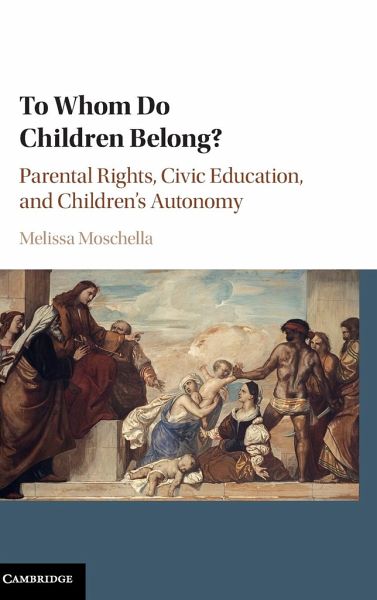
To Whom Do Children Belong?
Versandkostenfrei!
Versandfertig in 1-2 Wochen
118,99 €
inkl. MwSt.
Weitere Ausgaben:

PAYBACK Punkte
59 °P sammeln!
Most people believe that parents have rights to direct their children's education and upbringing. But why? What grounds those rights? How broad is their scope? Can we defend parental rights against those who believe we need more extensive state educational control to protect children's autonomy or prepare them for citizenship in a diverse society? Amid heated debates over issues like sexual education, diversity education and vouchers, Moschella cuts to the heart of the matter, explaining why education is primarily the responsibility of parents, not the state. Rigorously argued yet broadly acce...
Most people believe that parents have rights to direct their children's education and upbringing. But why? What grounds those rights? How broad is their scope? Can we defend parental rights against those who believe we need more extensive state educational control to protect children's autonomy or prepare them for citizenship in a diverse society? Amid heated debates over issues like sexual education, diversity education and vouchers, Moschella cuts to the heart of the matter, explaining why education is primarily the responsibility of parents, not the state. Rigorously argued yet broadly accessible, the book offers a principled case for expanding school choice and granting exemptions when educational programs or regulations threaten parents' ability to raise their children in line with their values. Philosophical argument is complemented with psychological and social scientific research showing that robust parental rights' protections are crucial for the well-being of parents, children and society as a whole.




